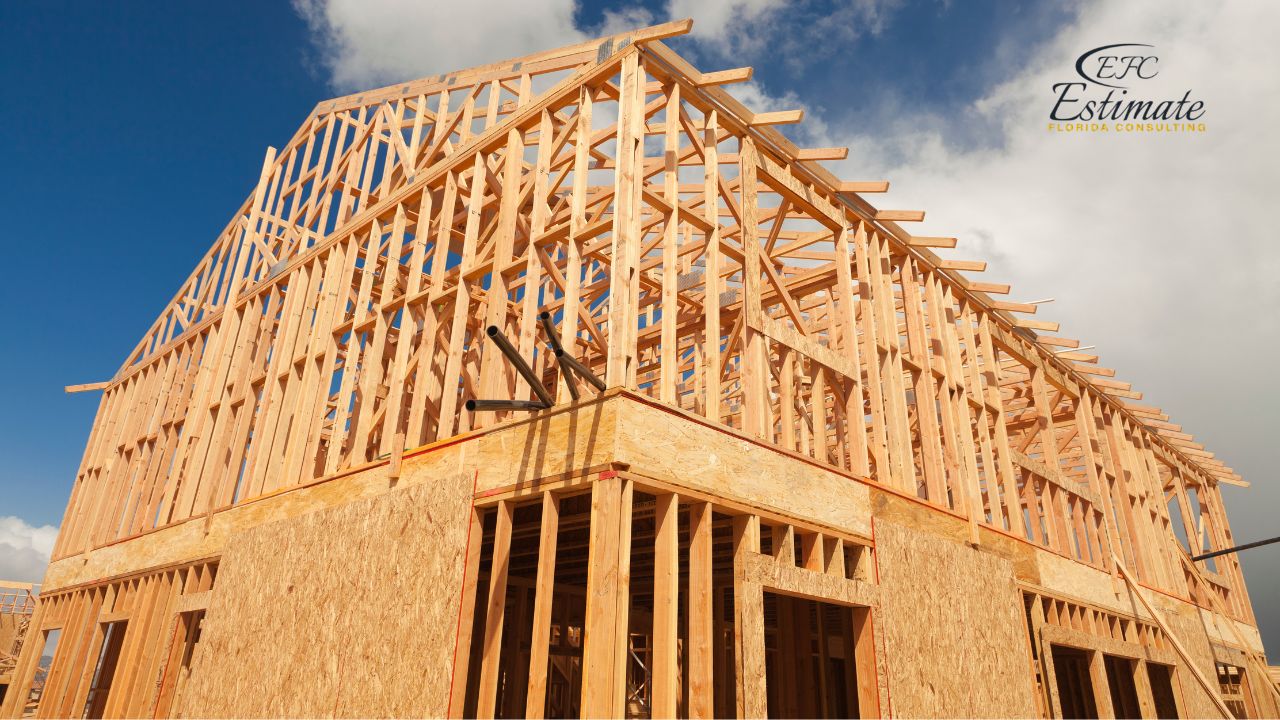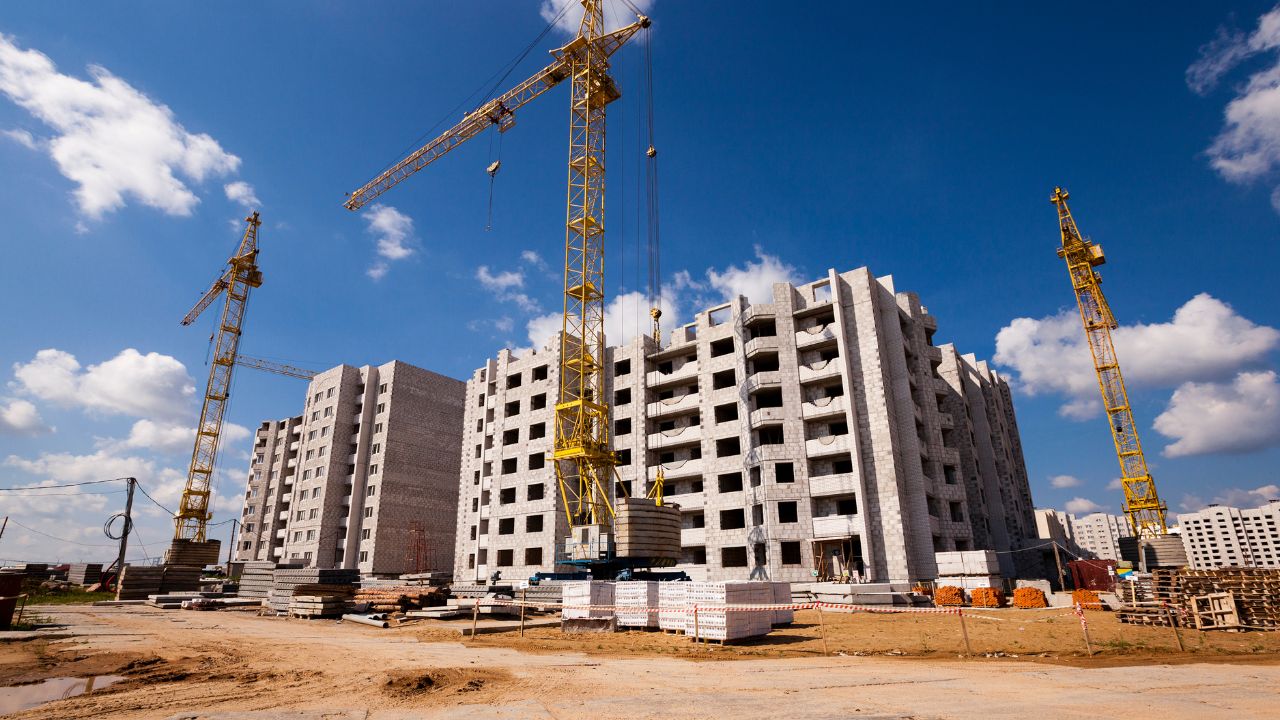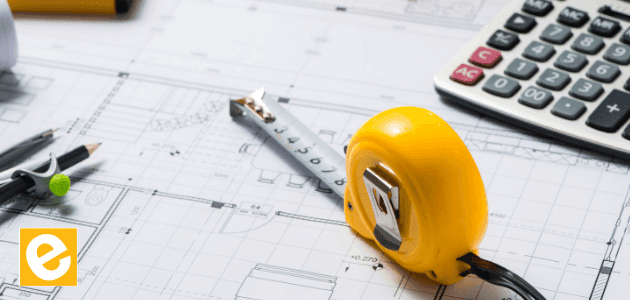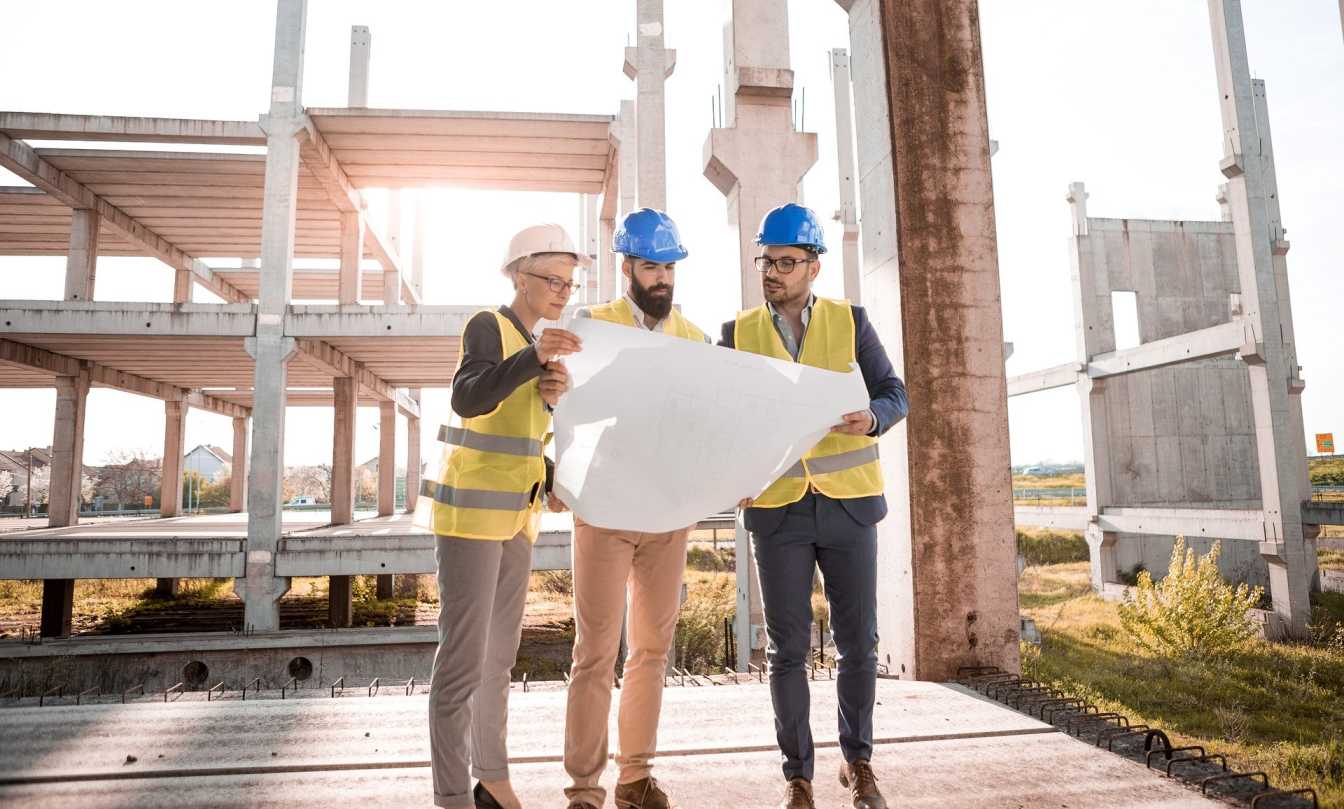Construction Cost Estimator in Jacksonville, FL
Estimate Florida Consulting, is a leading provider of comprehensive construction cost estimation services tailored to meet the unique requirements of our clients in Jacksonville and surrounding areas. Accurate cost estimation is crucial in the construction industry, serving as the foundation for budgeting and project planning. Construction costs can vary significantly based on factors such as project scale, materials, labor, and local regulations. Small-scale projects may range from $10,000 to $100,000+, while mid-sized endeavors typically fall between $200,000 to $1 million+.
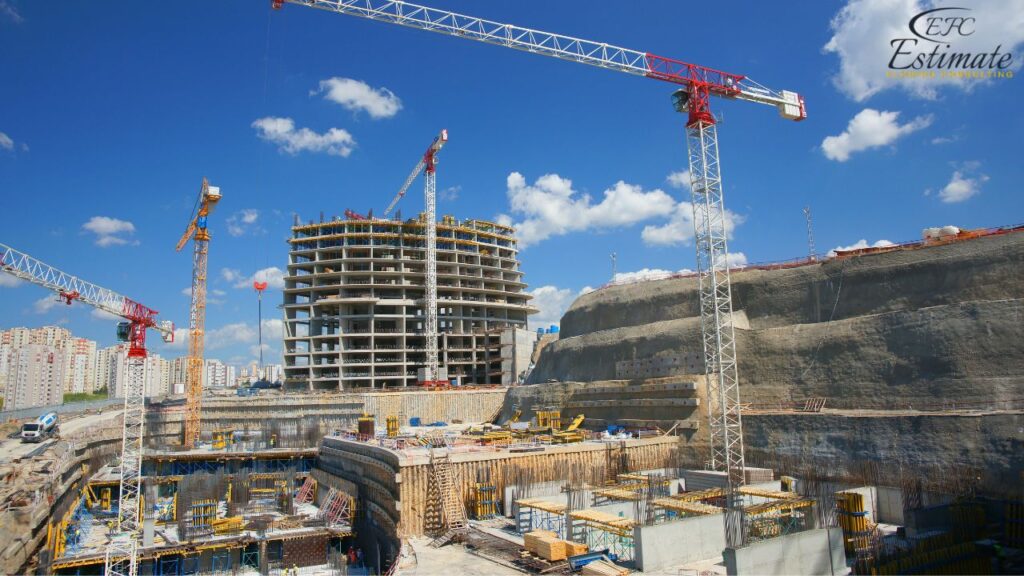
Larger projects, including commercial developments or infrastructure projects, may exceed $5 million or more, depending on complexity and scope. At Estimate Florida Consulting, we leverage our expertise and industry insights to deliver precise and reliable cost estimates, ensuring successful project outcomes.
We Work for All Construction Trades
Construction trades encompass a variety of specialized roles, each critical to the successful completion of a project. Skilled tradespeople not only ensure the work is done right but also enhance safety, efficiency, and compliance with local building codes. From the initial groundwork to the final touches, every step requires expertise from dedicated professionals.
Prices for Rebar by Type
Prices for rebar vary depending on the type, with steel rebar being the most commonly used and thus typically the most affordable option. Stainless steel rebar, known for its corrosion resistance, tends to be pricier due to its enhanced properties. Galvanized rebar, coated with zinc to prevent rusting, falls in between in terms of cost. Fiberglass rebar, although less common, offers advantages such as non-corrosiveness and electrical insulation but generally comes with a higher price tag compared to traditional steel rebar.
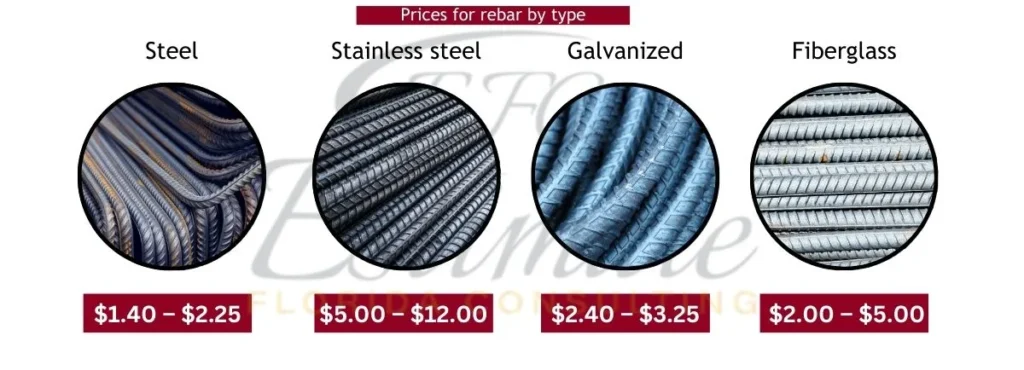
Rebar Type | Average Cost per Linear Foot | Details |
Steel | $1.40 – $2.25 | Basic untreated steel; Weldable; Corrodes easily |
Stainless Steel | $5.00 – $12.00 | Corrosion-resistant surface; Maintenance free; Good in saltwater areas; Not suitable for pool foundations near chlorinated water; More difficult to weld |
Galvanized | $2.40 – $3.25 | Zinc-coated surface; Resists corrosion and abrasion; Not ideal in saltwater areas |
Fiberglass | $2.00 – $5.00 | Lighter than steel; Corrosion-resistant surface; Some types stronger than steel; Thermally non-conductive |
90% More Chances to Win Projects With Our Estimate!
- Multi-Family Building
- Hotel Building
- Hospital Building
- Warehouse Building
- School & University Building
- High-Rise Building
- Shopping Complex
- Data Center Building
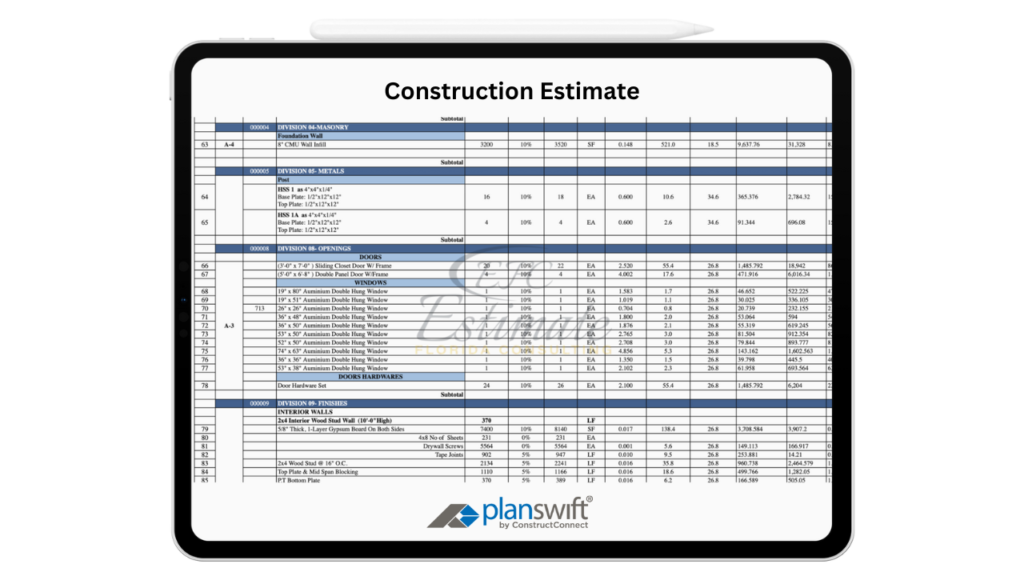
Cost by Size of Project
Projects vary widely in size and scope, with small-scale endeavors typically encompassing basic renovations or minor installations. Medium-scale projects involve more substantial undertakings such as building construction or system upgrades. Large-scale projects encompass major developments like infrastructure improvements or commercial constructions. Industrial-scale projects represent the most extensive ventures, including large-scale manufacturing facilities or industrial complexes, reflecting the complexity and magnitude of the endeavor.
Size of Project | Estimated Cost Range |
Small-scale Projects | $10,000 – $100,000+ |
Medium-scale Projects | $200,000 – $1,000,000+ |
Large-scale Projects | $500,000 – $5,000,000+ |
Industrial-scale Projects | $1,000,000 – $10,000,000+ |
Understanding the Construction Cost Estimations in Jacksonville
Jacksonville, nestled in the heart of Florida, boasts a dynamic construction landscape characterized by a blend of residential, commercial, and industrial developments. Understanding construction cost estimations in Jacksonville is crucial for stakeholders involved in various projects across the city. From revitalizing historic neighborhoods to erecting modern commercial spaces, accurate cost estimations serve as the cornerstone for successful project execution.
Commercial Development
Jacksonville commercial landscape is marked by bustling retail centers, office complexes, and hospitality establishments that cater to both locals and tourists alike. Cost estimations for commercial developments factor in aspects such as site preparation, structural requirements, architectural design, and specialized installations. Depending on the scale and complexity of the project, commercial construction costs in Jacksonville can range from $500,000 for small-scale retail spaces to several million dollars for large-scale mixed-use developments or corporate headquarters.
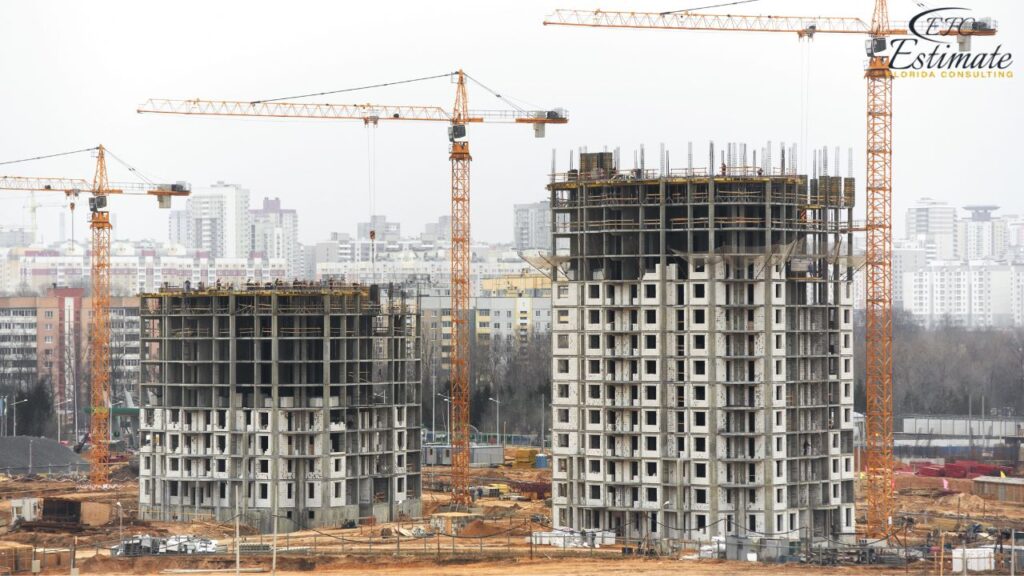
Residential Construction
The residential construction sector in Jacksonville caters to the diverse housing needs of its residents, ranging from single-family homes to multi-unit dwellings. Cost estimations for residential projects take into account factors such as lot size, construction materials, labor costs, and interior finishes. In Jacksonville, residential construction costs typically range from $100,000 for modest homes to upwards of $500,000 for custom-built luxury residences, reflecting the varied preferences and lifestyles of homeowners in the area.
Infrastructure Projects
Infrastructure projects play a vital role in enhancing Jacksonville connectivity, sustainability, and overall quality of life. From road expansions and utility upgrades to public transportation initiatives, infrastructure cost estimations encompass a wide range of elements, including materials, labor, permits, and engineering fees. Given the significance of infrastructure investments, cost estimations for such projects in Jacksonville can vary widely, with smaller initiatives starting from $100,000 and major undertakings exceeding $10 million, depending on the scope and complexity.
- Multi-Family Building
- Hotel Building
- Hospital Building
- Warehouse Building
- High-Rise Building
- Shopping Complex
Industrial Facilities
Jacksonville industrial sector contributes to the city’s economic vitality through the establishment of manufacturing plants, distribution centers, and warehousing facilities. Cost estimations for industrial projects take into consideration factors such as land acquisition, building construction, specialized equipment, and regulatory compliance. Industrial construction costs in Jacksonville typically range from $1 million for small-scale facilities to over $10 million for state-of-the-art manufacturing complexes, reflecting the city’s role as a hub for industrial innovation and growth.
Public Sector Initiatives
The public sector in Jacksonville spearheads various initiatives aimed at enhancing community infrastructure, facilities, and services. Cost estimations for public sector projects encompass a wide array of endeavors, including schools, parks, municipal buildings, and public safety facilities. These estimations consider factors such as public funding allocations, project timelines, environmental impact assessments, and community engagement efforts. Public sector construction costs in Jacksonville can vary significantly depending on the scale and nature of the project, with investments ranging from thousands to millions of dollars to meet the evolving needs of the community.
Understanding the intricacies of construction cost estimations in Jacksonville is essential for developers, contractors, and stakeholders alike, facilitating informed decision-making and ensuring the successful realization of projects that contribute to the city’s growth and prosperity.
Metal Siding Cost per Square Foot
Metal siding encompasses a wide array of materials and design options. The spectrum of metal siding materials spans from tin to copper, with costs spanning from $2 to $35 per square foot. Among the prevalent metal siding varieties, aluminum and steel stand out, falling within the price range of $4 to $8 per square foot.
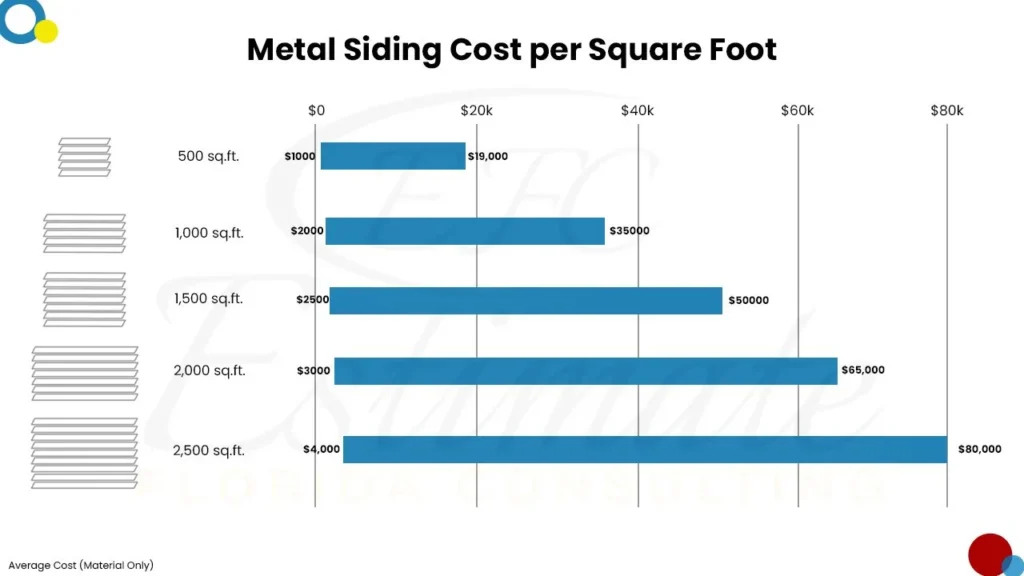
| Square Footage | Average Cost (Material Only) |
|---|---|
| 500 sq.ft. | $1,000 – $19,000 |
| 1,000 sq.ft. | $2,000 – $35,000 |
| 1,500 sq.ft. | $2,500 – $55,000 |
| 2,000 sq.ft. | $3,000 – $65,000 |
| 2,500 sq.ft. | $4,000 – $80,000 |
Factors Affecting Construction Cost Estimations in Jacksonville
Construction cost estimations in Jacksonville are influenced by a multitude of factors that can significantly impact project budgets and timelines. Understanding these factors is essential for stakeholders involved in planning, executing, and managing construction projects across the city.
Market Conditions
The prevailing market conditions in Jacksonville, including supply and demand dynamics for construction materials, labor availability, and economic trends, directly impact cost estimations. Fluctuations in material prices, labor wages, and subcontractor rates can affect overall project costs and feasibility.
Site Characteristics
The unique characteristics of construction sites in Jacksonville, such as topography, soil conditions, accessibility, and environmental regulations, play a crucial role in cost estimations. Sites with challenging terrain or environmental constraints may require additional earthwork, foundation reinforcement, or environmental remediation, leading to higher construction costs.
Project Scope and Complexity
The scope and complexity of construction projects in Jacksonville influence cost estimations significantly. Projects with intricate architectural designs, specialized building systems, or stringent regulatory requirements typically incur higher construction costs due to increased material, labor, and design expenses.
Permitting and Regulatory Compliance
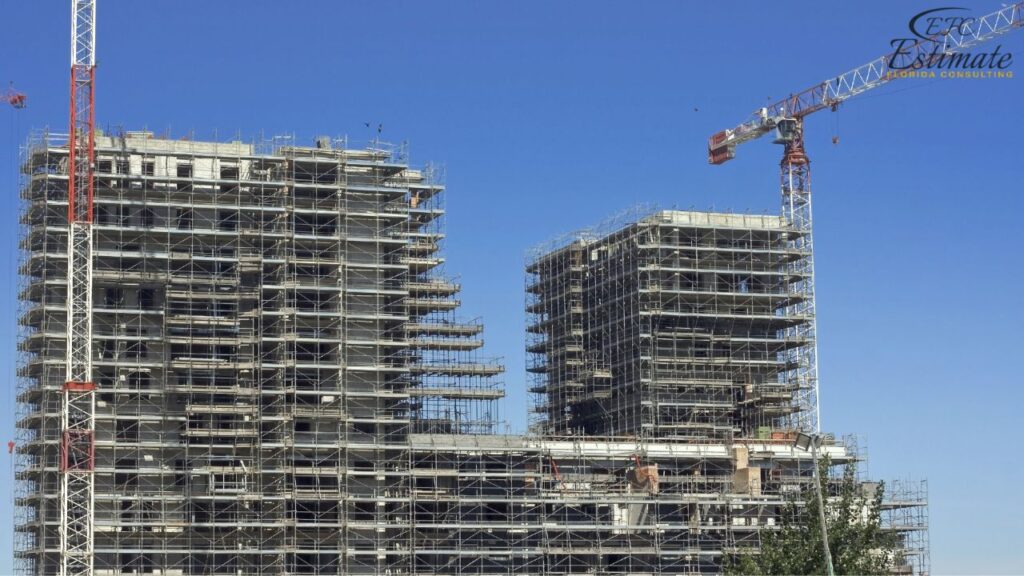
Compliance with local building codes, zoning regulations, and permitting requirements is integral to construction projects in Jacksonville. Delays or revisions in obtaining permits, addressing regulatory issues, or meeting environmental standards can impact project schedules and add unforeseen costs to the budget.
Design Changes and Variations
Design changes and variations during the construction process can disrupt project timelines and escalate costs in Jacksonville. Poorly defined project scopes, inadequate planning, or client-driven alterations may necessitate revisions to construction plans, resulting in additional expenses for materials, labor, and design fees.
Material Selection and Availability
The selection and availability of construction materials in Jacksonville affect cost estimations and project budgets. Prices and availability of materials such as concrete, steel, lumber, and specialized components fluctuate based on market demand, transportation costs, and supply chain disruptions, influencing overall project costs.
Labor Productivity and Skills
The productivity levels and skills of construction laborers and subcontractors in Jacksonville impact cost estimations and project timelines. Labor shortages, skill gaps, and workforce turnover can lead to delays, inefficiencies, and increased labor costs, affecting the overall cost of construction projects.
Economic Factors
Macroeconomic factors such as inflation rates, interest rates, and currency fluctuations can impact construction cost estimations in Jacksonville. Economic uncertainties, changes in government policies, and global market trends can influence material prices, financing costs, and project feasibility, affecting overall construction budgets.
Project Management and Contingencies
Effective project management practices and contingency planning are essential for mitigating risks and managing construction costs in Jacksonville. Budgetary allowances for unforeseen circumstances, project delays, and change orders are incorporated into cost estimations to minimize financial uncertainties and ensure project success.
Stakeholder Expectations and Preferences
The expectations and preferences of project stakeholders, including clients, investors, and end-users, influence construction cost estimations in Jacksonville.
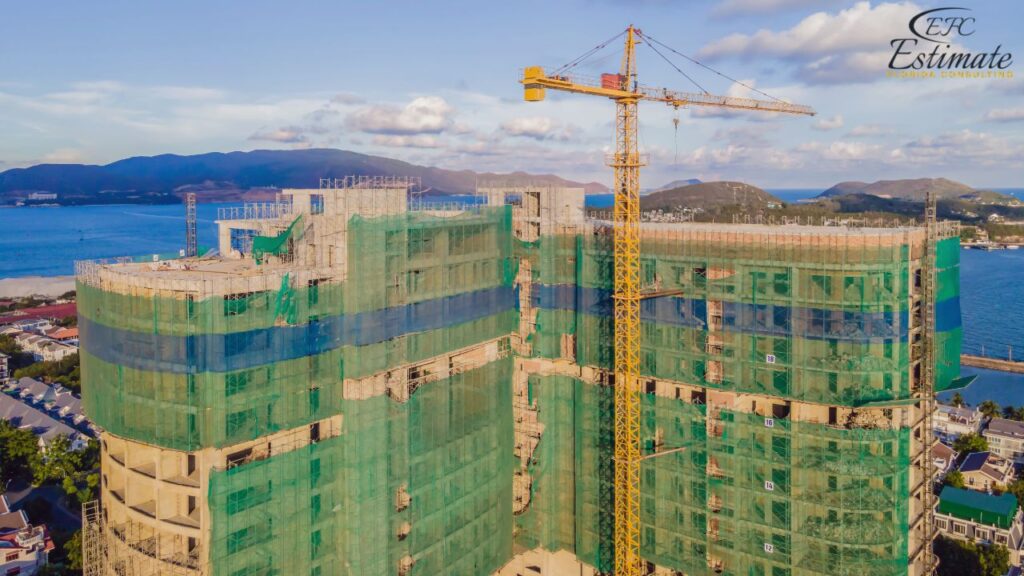
Balancing budgetary constraints with quality standards, sustainability goals, and aesthetic preferences requires careful consideration and communication throughout the project lifecycle.
Understanding the complex interplay of these factors is critical for developing accurate and comprehensive construction cost estimations in Jacksonville, enabling informed decision-making and successful project outcomes.
Vinyl Flooring Cost per Square Foot
The price of vinyl flooring can fluctuate considerably due to its wide array of thicknesses, finishes, styles, shapes, and installation methods. Sheet vinyl usually begins at around $2 per square foot, whereas luxury planks can reach up to roughly $20 per square foot. Factoring in installation costs, expect a range from approximately $4 to $24 per square foot, depending on the particular type chosen.
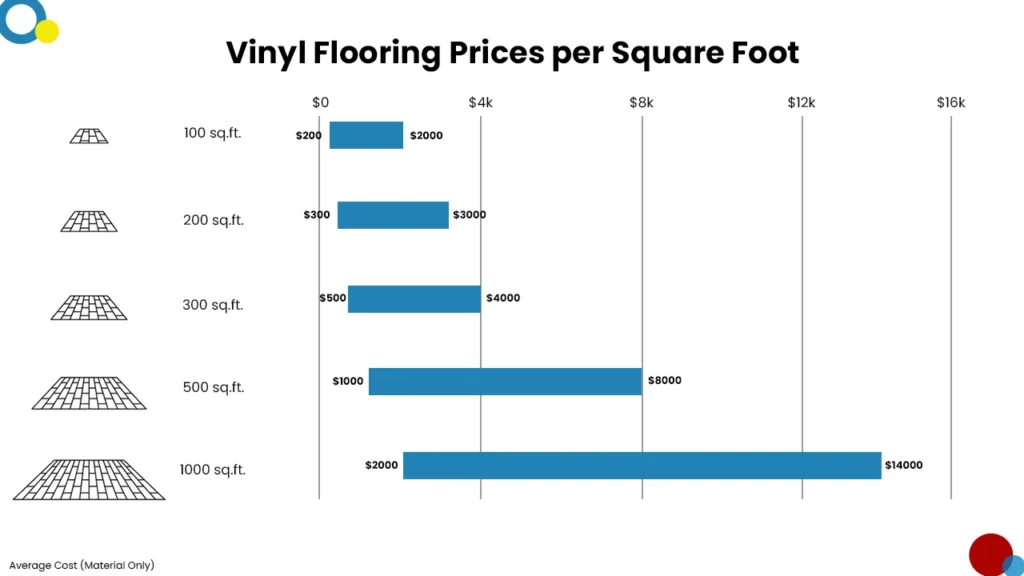
Size | Average Cost (Materials Only) |
100 sq.ft. | $200 – $2,000 |
200 sq.ft. | $300 – $3,000 |
300 sq.ft. | $500 – $4,000 |
500 sq.ft. | $1,000 – $8,000 |
1,000 sq.ft. | $2,000 – $14,000 |
Price Table by Type of Construction System
Construction systems encompass a broad spectrum of components and services crucial for building infrastructure, each contributing to the functionality, safety, and efficiency of the constructed space. From foundational elements like structural frameworks to finishing touches such as interior fit-outs, the cost of construction systems varies based on complexity, materials, and specialized requirements. Understanding these cost ranges is essential for accurate budgeting and project planning in Jacksonville construction landscape.
Construction System | Cost Range (per 1000 Square Feet) | Cost Range (per Square Foot) |
HVAC (Heating, Ventilation, and Air Conditioning) | $20,000 – $100,000 | $20 – $100 |
Plumbing | $10,000 – $50,000 | $10 – $50 |
Electrical Systems | $15,000 – $80,000 | $15 – $80 |
Fire Protection Systems | $5,000 – $30,000 | $5 – $30 |
Roofing | $10,000 – $50,000 | $10 – $50 |
Flooring | $5,000 – $30,000 | $5 – $30 |
Exterior Finishes | $10,000 – $60,000 | $10 – $60 |
Interior Finishes | $15,000 – $80,000 | $15 – $80 |
These cost ranges serve as estimates and may vary depending on project specifications, material selections, labor rates, and regional factors. It’s advisable to consult with a qualified constructor directly to obtain precise estimates tailored to your project’s unique requirements in Jacksonville.
Common Challenges and Solutions
Construction cost estimators in Jacksonville encounter various challenges as they strive to provide accurate and reliable estimations for diverse construction projects. Here are some common challenges along with innovative solutions to address them:
Material Price Volatility
Fluctuations in material prices can significantly impact construction costs, making it challenging to forecast project expenses accurately. Factors such as supply chain disruptions, market demand, and geopolitical events can lead to sudden price hikes or shortages.
Solution: Implementing proactive strategies such as long-term supplier partnerships, bulk purchasing agreements, and monitoring market trends can help mitigate the effects of material price volatility. Additionally, incorporating contingency allowances into cost estimates provides a buffer against unexpected price fluctuations.
Labor Shortages
Jacksonville, like many other regions, faces challenges related to skilled labor shortages in the construction industry. The demand for qualified workers often exceeds the available workforce, leading to increased labor costs and project delays.
Solution: To address labor shortages, construction companies can invest in workforce development initiatives, such as apprenticeship programs, to train the next generation of skilled workers. Additionally, embracing technology and automation can enhance productivity and efficiency, reducing reliance on manual labor.
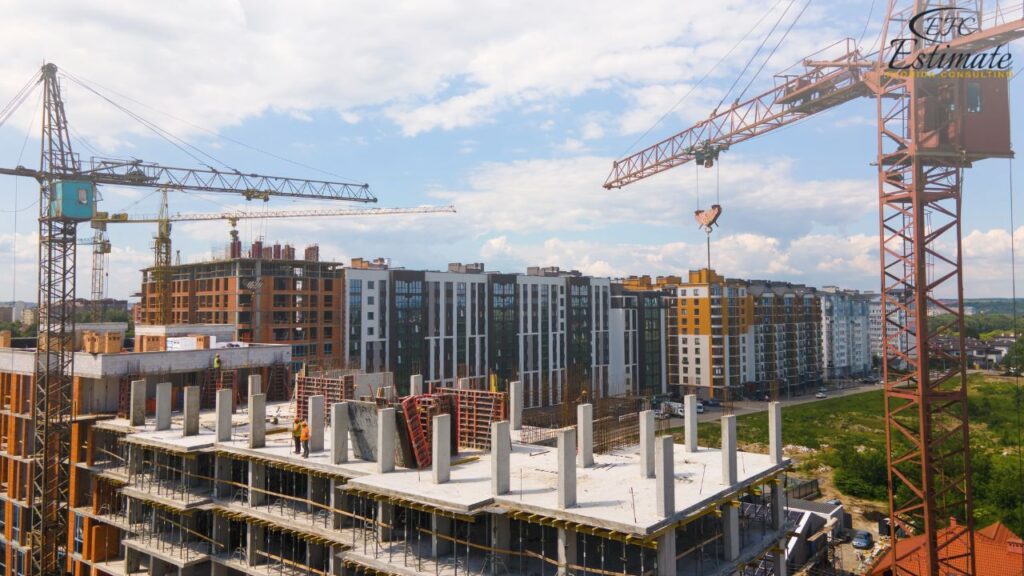
Regulatory Compliance
Navigating the complex landscape of building codes, zoning regulations, and environmental requirements adds another layer of complexity to construction cost estimation. Failure to comply with regulations can result in costly delays, fines, or even project shutdowns.
Solution: Engaging with experienced legal and regulatory experts early in the project planning phase can help identify and address regulatory requirements upfront. Leveraging digital tools and software that integrate regulatory compliance checks into the estimation process can streamline compliance efforts and ensure adherence to local laws and regulations.
Scope Changes
Changes in project scope, whether due to client preferences, design revisions, or unforeseen challenges, pose significant challenges for cost estimators. Adjusting cost estimates to accommodate scope changes while maintaining project viability requires agility and effective communication.
Solution: Establishing clear communication channels between project stakeholders and regularly updating cost estimates to reflect any scope changes are essential. Employing change management processes that outline procedures for evaluating and implementing scope changes can help minimize disruptions and ensure project success.
Risk Management
Identifying and mitigating project risks, such as weather-related delays, supply chain disruptions, or unforeseen site conditions, is essential for managing construction costs effectively. Failure to anticipate and address potential risks can lead to cost overruns and project delays.
Solution: Conducting comprehensive risk assessments during the estimation phase allows for the identification of potential risks and the development of mitigation strategies. Incorporating contingency reserves into cost estimates to account for unforeseen risks provides a financial safety net to address unexpected challenges as they arise.
By proactively addressing these common challenges and implementing innovative solutions, construction cost estimators in Jacksonville can enhance the accuracy and reliability of their estimates, ultimately contributing to the success of construction projects in the region.
Steps in Construction Cost Estimation Process in Jacksonville
Construction cost estimation in Jacksonville involves a systematic approach to analyzing project requirements, quantifying resources, and predicting expenses accurately. Here are the key steps in the construction cost estimation process:
Project Scope Definition
– Begin by clearly defining the scope of the construction project, including its objectives, deliverables, and timeline.
– Collaborate with project stakeholders to gather requirements and specifications, ensuring a comprehensive understanding of project goals.
Site Assessment
– Conduct a thorough assessment of the construction site, taking into account factors such as topography, soil conditions, accessibility, and environmental considerations.
– Identify any potential site challenges or constraints that may impact construction costs or project timelines.
Quantity Takeoff
– Perform a detailed quantity takeoff to quantify the materials, labor, and equipment required for each aspect of the project.
– Utilize architectural plans, engineering drawings, and specifications to identify and quantify the quantities of various construction components accurately.
Cost Estimation
– Estimate the costs associated with materials, labor, equipment, subcontractors, permits, and overhead expenses based on the quantities determined during the takeoff process.
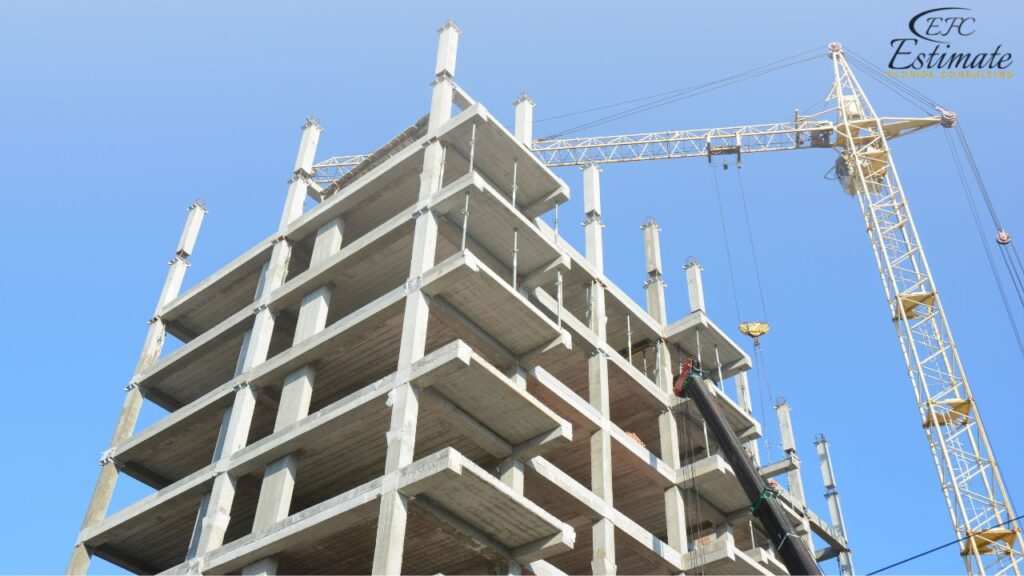
– Use historical cost data, industry benchmarks, and local market rates to derive accurate cost estimates for each project component.
Contingency Planning
– Incorporate contingency allowances into the cost estimates to account for unforeseen events, scope changes, or cost overruns.
– Allocate contingency reserves based on the level of project complexity, risk factors, and the degree of uncertainty associated with specific project elements.
Risk Assessment
– Identify potential risks and uncertainties that may impact project costs or timelines, such as weather-related delays, supply chain disruptions, or regulatory changes.
– Assess the likelihood and potential impact of each risk, and develop mitigation strategies to minimize their effects on the project.
Documentation and Reporting
– Document all assumptions, methodologies, and sources of data used in the cost estimation process to ensure transparency and accountability.
– Generate comprehensive cost estimation reports that outline the breakdown of costs by category, along with explanations of key assumptions and considerations.
Review and Validation
– Review the cost estimates with project stakeholders, including clients, architects, engineers, and contractors, to validate assumptions and ensure alignment with project objectives.
– Incorporate feedback and revisions as needed to refine the cost estimates and improve their accuracy and reliability.
Finalization and Approval
– Finalize the construction cost estimates based on the input received during the review process, ensuring that they reflect the latest project requirements and constraints.
– Obtain approval from relevant stakeholders before proceeding with project planning, procurement, and execution activities.
By following these steps diligently, construction cost estimators in Jacksonville can generate accurate, reliable estimates that serve as valuable tools for project planning, budgeting, and decision-making.
Are You Looking For?

Fully Insured License
Hire Subcontractor For Construction

Make Informed Design Decisions Showcase Your Design Ideas
Get RenderingCall Us To Discuss More at 561-530-2845
Conclusion
Construction cost estimation in Jacksonville is a critical aspect of the project lifecycle, influencing budgetary decisions, timelines, and overall project success. By meticulously analyzing project requirements, conducting thorough site assessments, and leveraging industry expertise, construction cost estimators play a pivotal role in forecasting expenses and mitigating financial risks. Throughout the estimation process, it is essential to incorporate contingency planning, risk assessment, and stakeholder collaboration to ensure the accuracy and reliability of cost estimates. As Jacksonville continues to experience growth and development, construction cost estimators face ongoing challenges such as material price volatility, labor shortages, and regulatory complexities. However, by embracing innovative technologies, adopting best practices, and fostering open communication among project stakeholders, these challenges can be effectively addressed.
We Provide Services for Other Trades in Jacksonville
FAQs
Construction costs in Jacksonville are influenced by various factors, including project size, complexity, location, materials, labor availability, market conditions, and regulatory requirements. Each of these factors can impact the overall cost of a construction project.
The accuracy of construction cost estimates in Jacksonville depends on several factors, including the quality of data available, the experience of the estimator, the level of detail in the estimation process, and the degree of uncertainty associated with the project. While estimators strive to provide accurate estimates, it’s essential to recognize that cost estimates are projections based on current information and may be subject to change as the project progresses.
A typical construction cost estimate includes various components such as materials, labor, equipment, subcontractor costs, permits, overhead expenses, contingency allowances, and profit margin. The estimate breaks down the costs associated with each aspect of the project to provide a comprehensive overview of the total project expenses.
To ensure that your construction project stays within budget, it’s essential to work closely with your construction cost estimator to develop a realistic budget based on accurate cost estimates. Additionally, regularly monitor project expenses, track progress against the budget, identify and address any cost overruns or deviations promptly, and implement effective cost management strategies throughout the project lifecycle.
When hiring a construction cost estimator in Jacksonville, consider factors such as the estimator’s experience, qualifications, track record, familiarity with local market conditions, and ability to communicate effectively. It’s also essential to assess their understanding of your project requirements, attention to detail, and proficiency in using relevant estimation tools and methodologies.
To request a construction cost estimate for your project in Jacksonville, you can contact reputable construction cost estimation firms or independent estimators in the area. Provide them with detailed information about your project requirements, including architectural plans, engineering drawings, specifications, and any other relevant documentation. The estimator will then assess your project’s needs and provide you with a customized cost estimate tailored to your specific requirements.
If there are changes to your construction project after receiving the initial cost estimate, communicate these changes promptly to your construction cost estimator. They can then update the cost estimate to reflect the revised project scope, specifications, or other relevant factors. It’s essential to maintain open communication with your estimator throughout the project to ensure that the cost estimate remains accurate and up-to-date.
Process To Get Construction Cost Estimate Report
Here I am going to share some steps to get your construction cost estimate report.
-
You need to send your plan to us.
You can send us your plan on info@estimatorflorida.com
-
You receive a quote for your project.
Before starting your project, we send you a quote for your service. That quote will have detailed information about your project. Here you will get information about the size, difficulty, complexity and bid date when determining pricing.
-
Get Estimate Report
Our team will takeoff and estimate your project. When we deliver you’ll receive a PDF and an Excel file of your estimate. We can also offer construction lead generation services for the jobs you’d like to pursue further.
Google Reviews



Reach Out To Us
Places to visit if you new in Jacksonville
Catty Shack Ranch Wildlife Sanctuary
Catty Shack Ranch Wildlife Sanctuary operates as a 501(c)(3) non-profit, dedicated to offering a secure and caring forever home to endangered big cats while raising awareness about their challenges both in the wild and in captivity. Here they strictly adhere to a policy of not engaging in breeding, selling, or trading any of their animal residents. Presently, our sanctuary provides a haven for various species including tigers, lions, leopards, pumas, servals, bobcats, foxes, and coatimundis.
Covering 73 acres, Jacksonville Zoo and Gardens stands as the sole zoo in Florida’s northeast region. Housing a diverse population of over 2000 animals and nurturing 1000 plants, it distinguishes itself as one of only seven zoos in the United States boasting an animal wellness team. This dedicated team ensures the provision of optimal care for our animal residents, prioritizing their well-being above all else.
The Cummer Museum of Art & Gardens
Established on November 10, 1961, the Cummer Museum of Art & Gardens originated from the residence of Arthur and Ninah Cummer. Initially, Ninah Cummer’s modest collection of sixty pieces laid the foundation for the museum. Since then, the museum’s permanent collection has flourished, expanding to over six thousand works of art spanning a remarkable eight thousand years of art history.
Big Talbot Island State Park, Jacksonville Florida’s coast, boasts stunning natural beauty and diverse ecosystems. Visitors are drawn to its expansive salt marshes, pristine beaches, and unique coastal dune habitats. The park is renowned for its striking “boneyard beach,” adorned with weathered skeletons of trees shaped by the elements.

